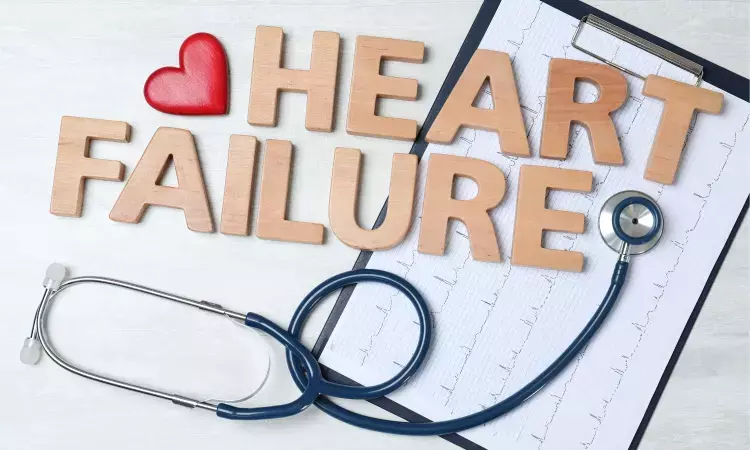- Home
- Medical news & Guidelines
- Anesthesiology
- Cardiology and CTVS
- Critical Care
- Dentistry
- Dermatology
- Diabetes and Endocrinology
- ENT
- Gastroenterology
- Medicine
- Nephrology
- Neurology
- Obstretics-Gynaecology
- Oncology
- Ophthalmology
- Orthopaedics
- Pediatrics-Neonatology
- Psychiatry
- Pulmonology
- Radiology
- Surgery
- Urology
- Laboratory Medicine
- Diet
- Nursing
- Paramedical
- Physiotherapy
- Health news
- Fact Check
- Bone Health Fact Check
- Brain Health Fact Check
- Cancer Related Fact Check
- Child Care Fact Check
- Dental and oral health fact check
- Diabetes and metabolic health fact check
- Diet and Nutrition Fact Check
- Eye and ENT Care Fact Check
- Fitness fact check
- Gut health fact check
- Heart health fact check
- Kidney health fact check
- Medical education fact check
- Men's health fact check
- Respiratory fact check
- Skin and hair care fact check
- Vaccine and Immunization fact check
- Women's health fact check
- AYUSH
- State News
- Andaman and Nicobar Islands
- Andhra Pradesh
- Arunachal Pradesh
- Assam
- Bihar
- Chandigarh
- Chattisgarh
- Dadra and Nagar Haveli
- Daman and Diu
- Delhi
- Goa
- Gujarat
- Haryana
- Himachal Pradesh
- Jammu & Kashmir
- Jharkhand
- Karnataka
- Kerala
- Ladakh
- Lakshadweep
- Madhya Pradesh
- Maharashtra
- Manipur
- Meghalaya
- Mizoram
- Nagaland
- Odisha
- Puducherry
- Punjab
- Rajasthan
- Sikkim
- Tamil Nadu
- Telangana
- Tripura
- Uttar Pradesh
- Uttrakhand
- West Bengal
- Medical Education
- Industry
Longer leukocyte telomere length associated with better cardiac function and lower risk of incident HF: JAMA

An Original Investigation published on July 26, 2023, in JAMA Cardiology entitled "Association of Longer Leukocyte Telomere Length With Cardiac Size, Function, and Heart Failure" by Dr Nay Aung and colleagues has highlighted there is a role of modulation of leukocyte telomere length or LTL dynamics in improving cardiovascular structure and function.
There is an association between LTL and a lower risk of adverse cardiovascular outcomes. There needs to be more clarity on the extent to which LTL variation is associated with intermediary cardiovascular phenotypes.
The main research question is whether LDL is associated with cardiovascular structure and function changes.
This background was researched in this study of 40 459 UK Biobank participants. Researchers measured LTL using a quantitative PCR method. Cardiovascular imaging traits and heart failure were the primary outcomes measured.
The key results of the study are:
- The study had 19 529 men of mean age 55 years, constituting 48%.
- Longer LTL was associated with a pattern of positive cardiac remodelling (higher left ventricular mass, larger global ventricular size and volume, and higher ventricular and atrial stroke volumes) and a lower risk of incident HF.
- There was a potential causal association between LTL and left ventricular mass, global ventricular volume, and left ventricular stroke volume.
Concluding further, they said, We found an association of longer LTL with a larger heart wand better cardiac function in middle age.
The findings of this study explain the reduced incidence of heart failure.
They said, “To our knowledge, this is the first and largest study to investigate the potential causal association between LTL and a comprehensive set of cardiac structure and function, robustly measured with CMR.”
The study’s strengths include the largest sample size and application of MR for potential causal inference analysis using data from recent extensive genome-wide association studies.
Further reading:
Aung N, Wang Q, van Duijvenboden S, et al. Association of Longer Leukocyte Telomere Length With Cardiac Size, Function, and Heart Failure. JAMA Cardiol. Published online July 26, 2023. doi:10.1001/jamacardio.2023.2167
BDS, MDS in Periodontics and Implantology
Dr. Aditi Yadav is a BDS, MDS in Periodontics and Implantology. She has a clinical experience of 5 years as a laser dental surgeon. She also has a Diploma in clinical research and pharmacovigilance and is a Certified data scientist. She is currently working as a content developer in e-health services. Dr. Yadav has a keen interest in Medical Journalism and is actively involved in Medical Research writing.
Dr Kamal Kant Kohli-MBBS, DTCD- a chest specialist with more than 30 years of practice and a flair for writing clinical articles, Dr Kamal Kant Kohli joined Medical Dialogues as a Chief Editor of Medical News. Besides writing articles, as an editor, he proofreads and verifies all the medical content published on Medical Dialogues including those coming from journals, studies,medical conferences,guidelines etc. Email: drkohli@medicaldialogues.in. Contact no. 011-43720751


